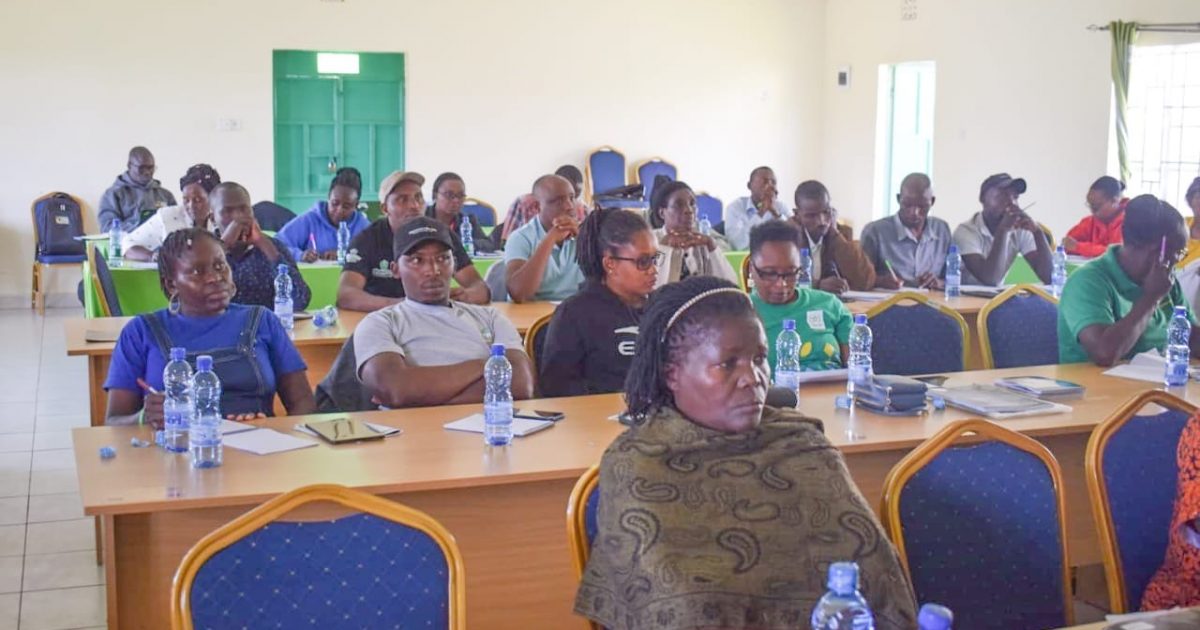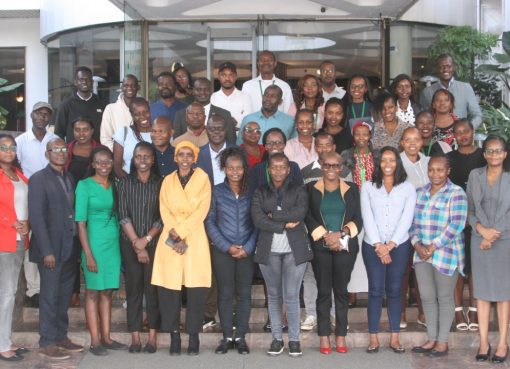County Government of Nakuru is partnering with the Center for Agricultural Bioscience International (CABI) to offer refresher training to at least 60 plant doctors on how to diagnose plant health problems to help equip farmers with safe and effective solutions for managing aggressive crop pests and diseases occasioned by negative effects of climate change.
According to the national trainer at Plant-wise Plus Program (CABI’s training agency), Mr Abel Too, the rapidly changing climate had occasioned many challenges including new crop diseases and pests, with some of them becoming increasingly devastating to farmers hence calling for a new approach in dealing with them.
To control the aggressive pests and diseases that have emerged in the wake of climate change and global warming, Mr. Too emphasized the need to relook at the management strategies saying that the major fallouts of climate change including increased temperatures, ultraviolet radiation, and low relative humidity may have rendered many established pests control strategies less effective.
Speaking at the Agriculture Training Centre (ATC) in Nakuru Mr Too indicated that in the wake of climate change it was imperative to provide regular retraining programs for plant doctors so that they are familiar with emerging trends in crop disease and pest control.
The National Trainer regretted that wrong diagnostics of emerging plant diseases and pests had led to resistance of the pestilences to agrochemicals, a menace he said had globalized to alarming proportions afflicting at least 41 percent of food crops worldwide, according to the United Nations’ Food and Agriculture Organization (FAO).
He was however happy that the training was bearing fruits citing pests such as the Fall army worm, which he said entered the country through the borders but was detected and controlled through the plant doctors.
“We connect plant doctors to labs working with agencies such as the Kenya Agricultural Livestock Research Organization (KALRO) to really see how those pest problems could be identified and solutions provided,” the National Trainer said.
At the same time Mr Too said Plant-wise Plus Program was not only addressing food security, but also food safety as the plant doctors were being asked to give the safest way that is also environmentally safe and use the integrated pest and disease management options to manage that pest and disease.
Kenya is among 17 member countries in Africa that have been working with Centre for Agriculture and Bioscience International (CABI), an international intergovernmental development and information organization that seeks to support use of nature-based solutions to cushion farmers against crop losses.
In the last 10 years, the Trainer said the initiative was able to reach over 60 million farmers worldwide in 34 countries in the phase that had ended this year, but in the scale up that will run for the next 7 years until 2030, the target being to reach over 75 million farmers.
To address new challenges posed by the emerging pests and diseases in the county, Nakuru deputy governor David Kones said they were partnering with the Ministry of Agriculture, Livestock and Fisheries, Kenya Agricultural and Livestock Research Organization (KALRO), Kenya Plant Health Inspectorate Service (Kephis), Centre for Agriculture and Biosciences International (CABI), University of Nairobi and the Pest Control Products Board and have put up 45 plant clinics spread out in all the 11 sub-counties.
Mr Kones cited a number of crop pests including Maize Lethal Necrosis as the most devastating plant disease afflicting maize farmers in the County, blight which afflicts tomatoes, beans and potatoes, the deadly Ug99 strain of stem rust known for causing massive wheat losses and Downy mildew which strikes vegetables which he said were being addressed at the crop clinics.
According to the International Maize and Wheat Improvement Centre, climate change is driving the spread of pests and diseases across continents. The center points out that climate change can affect the population size, survival rate and geographical distribution of pests; and the intensity, development and geographical distribution of diseases.
As climate change hits harder, pests are also said to be changing their behavior patterns to cope. International Crops Research Institute for the Semi-Arid Tropics (ICRISAT) – Crop Trust adds that owing to climate change, insect pests presently confined to tropical and subtropical regions will move to temperate regions along with a shift in the areas of production of their host plants; while distribution and relative abundance of some insect species vulnerable to high temperatures in the temperate regions may decrease as a result of global warming.
By Esther Mwangi and Felistas Kahungu




